Yes, the 2008 Olympics are about to begin in Beijing, but I'm one of those people who enjoy the Winter Olympics more. It's smaller and cozier, and it has all that snow and ice, cool stuff we don't see living in Hawaii. Before the craziness begins on 8/8/08 in China, I'm feeling nostalgic for the 2006 Winter Olympics from Turin. Here's what I wrote two years ago about some of the nice-on-ice highlights, including some lessons for writers.
It happens every four years. The Olympic Winter Games take over my life, and the lives of many others. I didn’t make it to Turin this past month, but I was there in spirit. Following the closing ceremonies on Sunday evening I spent a couple of hours ungluing my eyes from the television screen. For two weeks I was totally involved in the human drama of this great event, each athlete a story, each day a new opportunity for glory. We watched them fall, then rise again to fight for redemption, as figure skater Sasha Cohen did in winning the silver medal with her amazing performance.
The Olympics always teach us something about participating and competing. I was fortunate to catch an interview with Sarah Hughes, the gold medal figure skater from the 2002 Salt Lake Games. She was asked if she gave advice to her younger sister before Emily Hughes went out on the ice in these 2006 Games. Sarah said that when you train and compete you just have to find what works for you and then stick with that. She said that Emily would follow her same routine, including sleeping for nine and a quarter hours the night before the competition. How precise! Obviously Emily has discovered exactly how much sleep she needs each night.
Nobody said it then, but this seems to be good advice for writers as well. Find what works for you. Then stick with it. This implies a writing routine, one that works in your life, deciding when to write, and how to write, what kind of outline, or no outline, and so on. Then it’s all about discipline. If you give yourself to the discipline you will discover the freedom to grow, as one might lock oneself in a writing room all morning, only to discover that there are no locks on the imagination, and no walls to confine the creative spirit.
I learned other valuable lessons from the Winter Games this time around. You can learn a lot by watching a person slide a 42-pound granite stone (or “rock”) down a long sheet of ice, with two teammates walking in front of the stone and sweeping hard, or lightly, or not at all (with what Lynn calls “those little sweepy things”), as the stone makes it way to the target (or “house”). Yes, it’s curling! I used to believe that the world was divided into those who loved anchovies and those who would rather starve than eat one. Now I am convinced that the world is divided into those who don’t get curling, those who love curling, and those who would love curling if they only gave it a chance.
Curling is that strange girl in your high school English class who was from another planet, but her charms were only waiting to be discovered. Once enchanted, however, you could not resist her. One of the Olympic commentators said that curling is like peanuts, that once you start it’s hard to stop. All I know is that I found myself waking up at 5 in the morning, without an alarm, knowing only that a curling game was on TV at that very moment. The siren call pulled me down the stairs, still half asleep, turning on the game, and the coffee, and curling up on the sofa for yet another date.
Midway through the Olympics I knew enough about the sport to have an opinion about the tactics of each rock. Curling has been called “chess on ice,” an apt description. The captain of the four-person team, called the skip, is the mastermind, thinking several turns ahead and mapping the team’s strategy. The skip also throws the last two rocks in each of the ten ends (innings), so he must perform well at these critical moments.
It is instructive to watch the closeups of the eyes of the curlers as they slide and release the rock. Eyes steady on the target, the picture of concentration. The next time I need to focus in my writing, I will see those eyes. I will also see the USA skip, Pete Fenson, from small-town Minnesota, owner of Dave’s Pizza. If Pete were in a Western movie he would be the leader of an outlaw gang, the one you would call “a cool customer,” telling the guys just what to do and when to do it, then riding into town to rob the bank. In Turin, Pete and his gang rode out of town with bronze medals to chants of “USA! USA!”
The team’s female fans also serenaded them with “Jeepers, creepers, where’d you get those sweepers? Jeepers, creepers, where’d you get those guys?” Curling fans wear crazy hats too, but that’s another story. After watching the fans during the games, I have a hunch that most, if not all, of them love anchovies too. Next time I’m in Bemidji, Minnesota, I plan to drop in at Dave’s Pizza and order a pizza with extra anchovies. Shouldn’t be a problem.
Bemidji is also the home of the USA women’s curling team, which struggled during the Olympics but was still just a few good shots at critical times from bringing back medals. The young women on the team are from northern regions — Minnesota, Wisconsin, and Alaska — and have those fair complexions and clear eyes that seem just right for the sport of curling. Like the men’s team, they were good teammates, together in victory or defeat. I wish them well. Perhaps they will make it to the 2010 Winter Games in Vancouver. Maybe by then there will be a Curling Channel on cable. Stay tuned.
Sunday, August 3, 2008
Subscribe to:
Post Comments (Atom)



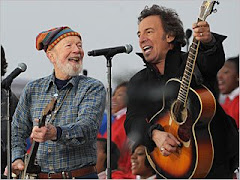

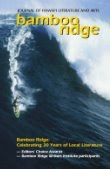
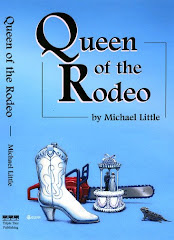


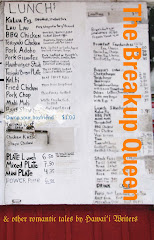

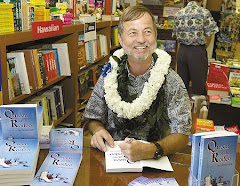

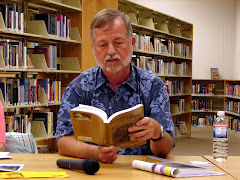
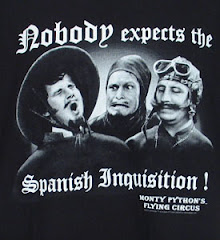
1 comment:
Great story to pass the summer away with...
Post a Comment